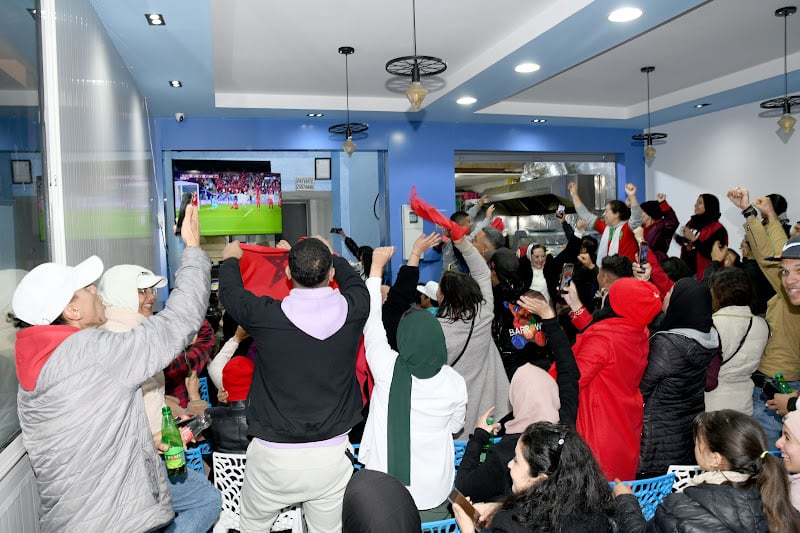Cafés are gearing up this Wednesday to welcome Moroccans who will be following the national football team’s match against Tanzania in the Ivorian city of San Pedro as part of the ongoing Africa Cup of Nations 2012 tournament, which kicked off last Saturday.
Similar to what occurred in the last World Cup, it is expected that women will also flock to cafés, seeking to enjoy the excitement and support the national team from behind the screens.
However, this time, there is an anticipation to overcome the previous online discussions that “prioritized café attendance for men only.”
Presently, albeit in a “slight” manner, some posters and images circulating on social media add an element of mockery to the anticipated presence of women in cafés during the current continental event, as observed by Hespress.
Women’s activists, speaking to Hespress, emphasized the “need to break with stereotypical perceptions regarding who has priority in frequenting cafés,” asserting that “these spaces remain for everyone, both men and women, within the framework of a democratization of the viewing experience.”
Cafés for Everyone
Amina El Tobali, a researcher on women’s issues, stated, “The circulated publications on such occasions reflect stereotypical and outdated ideas towards Moroccan women.
They also carry a symbolic violence towards them. Cafés remain for everyone, males and females.
Women have the right to follow all sports and engage in various forms of participation.”
El Tobali, in her conversation with Hespress, added that “the Moroccan national team does not represent a specific gender or category; rather, it represents a society and a nation as a whole.
Therefore, supporting it is the right of everyone, both men and women, whether in cafés or stadium stands.”
She clarified that “Moroccan women contributed to supporting the national team during the last World Cup.”
She stressed the “need to break with the perception that gives full priority to men alone in attending cafés, excluding women,” highlighting that “the biggest concern is that these perceptions and publications may turn into a negative reaction towards females in public spaces.
At that point, it will be an incitement contributing to widening the circle of discrimination against women and infringing on their freedom to use these spaces and creating a guardianship over them.”
Need for “Changing Mindsets”
Najia Tazrout, the president of the network “The League Against Gender Violence” and a member of the executive office of the Federation of Women’s Rights League, stated, “Moroccan women, in general, are accustomed to such outings, which aim at their freedom to access public spaces on such occasions.”
She explained that “such publications and expressions are gratuitous at their core and cannot change anything on the ground.”
Tazrout, in her conversation with Hespress, said that “these outings and publications signal the need to work on changing mindsets through educational programs, by emphasizing the culture of equality, coexistence, and the right to common public spaces.
Moroccans, as a whole, have the right to access public spaces.”
She clarified that “the issue of women attending to support the national team in public spaces has already been settled. The last edition of the World Cup demonstrated the enthusiasm of Moroccan women for football.”
She added that “King Mohammed VI hosting the national team players with their mothers carried more than one message.”











